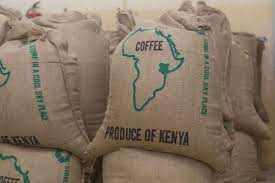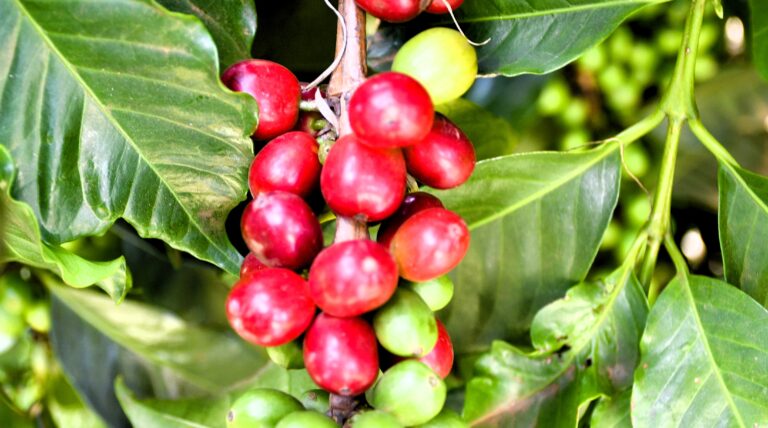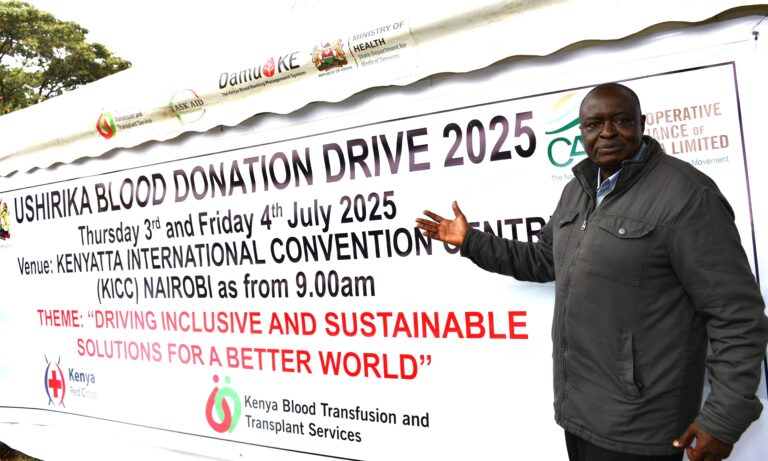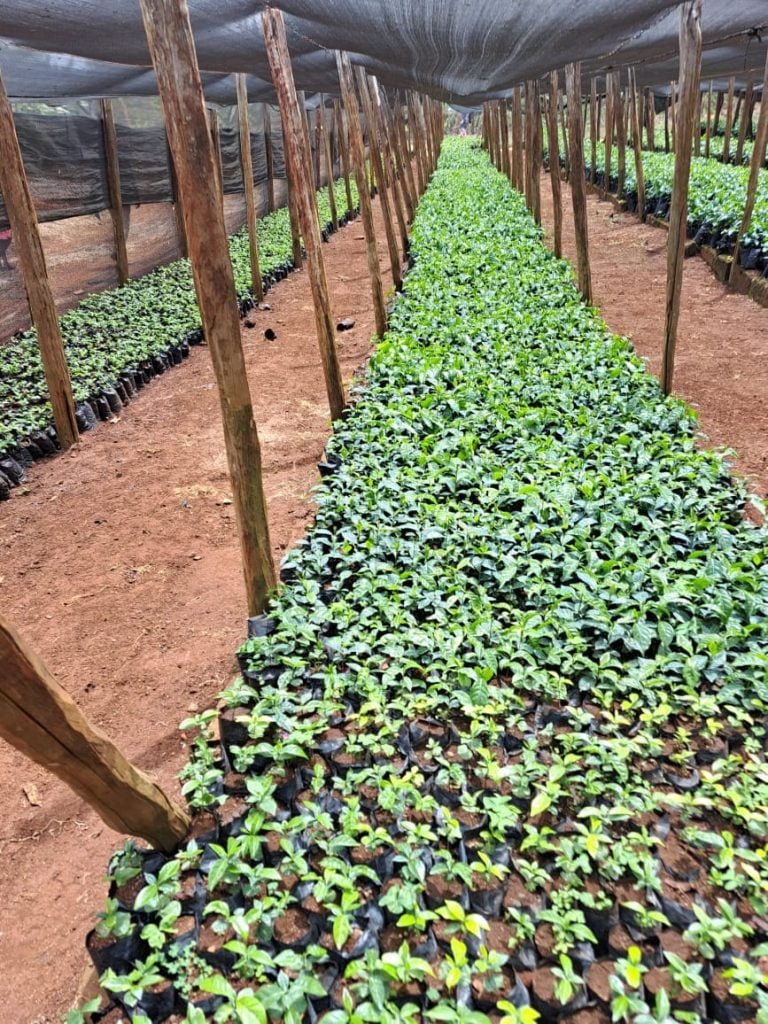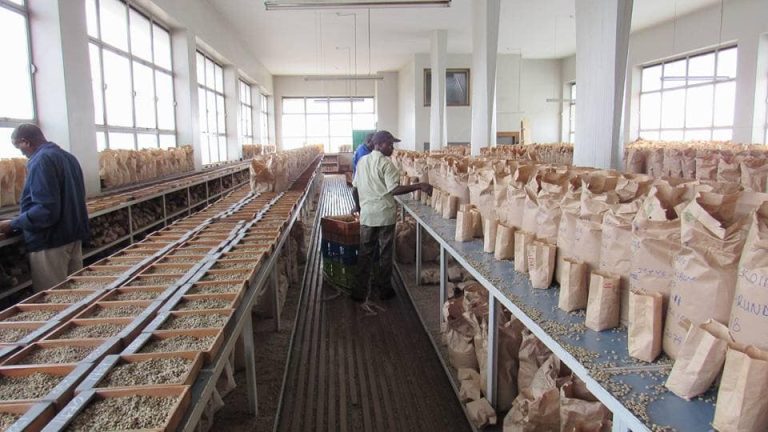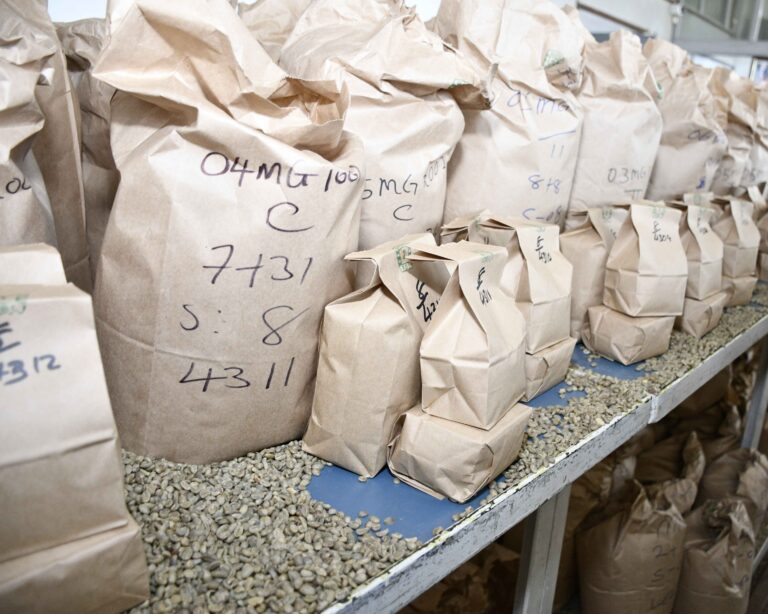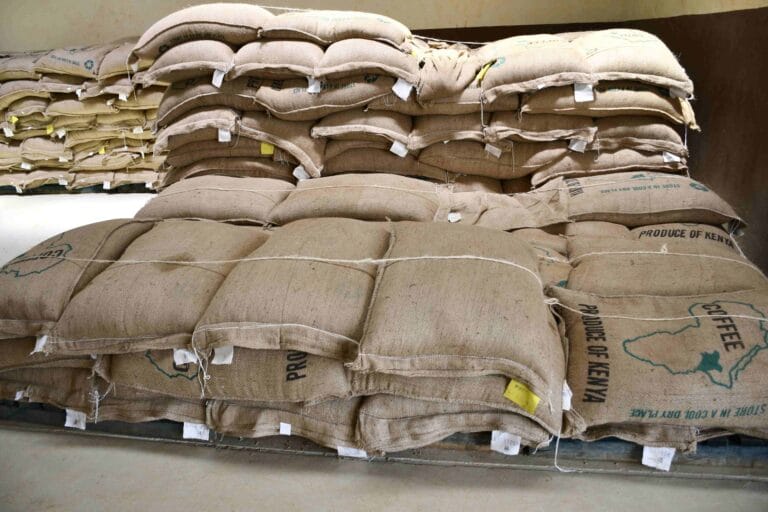By Kimuri Mwangi
Kenya joined the rest of the world in marking the 2025 International Coffee Day at Utalii Hotel in Nairobi, with the New Kenya Planters Cooperative Union (New KPCU) hosting farmers, cooperatives, and sector stakeholders to reflect on the coffee journey.
The event highlighted key milestones achieved in the revitalisation of the industry, with Chief Guest Patrick Kilemi, Principal Secretary in the State Department of Cooperatives, and New KPCU Managing Director Timothy Mirugi outlining progress in reforms, financing, and market development.
PS Kilemi reminded participants that Kenya’s coffee sector has experienced both highs and lows over the decades. He recalled that production reached peaks of 150,000 metric tonnes between the 1970s and 1990s but later fell to as low as 30,000 metric tonnes.

The sharp decline, he explained, was largely caused by weak transmission of value from the market back to farmers, leaving them discouraged despite Kenya producing some of the world’s most celebrated coffee. “As we speak today, our production is going up. We are looking at maybe closing this year at numbers of around 60 to 70 metric tonnes. The target is to get to 150,000 metric tonnes in the next three years,” he said, attributing the turnaround to reforms spearheaded by President William Ruto’s administration.
A major milestone has been the geographical expansion of coffee growing beyond traditional strongholds. According to Kilemi, the government has organised more than 55 certification meetings across different counties to support new growers. Millions of seedlings have already been distributed with backing from the World Bank and the State Department of Agriculture.

This initiative, he said, was designed to unlock “horizontal growth” by bringing new farmers on board while research institutions and extension services focus on “vertical growth”, improving yields from existing bushes. “From good farmers practising good agronomy, you can get up to 40, 50 kgs per bush,” Kilemi explained, contrasting this with the current average of less than 2kg per bush.
Kilemi further pointed to progress in governance and regulation. Both the Coffee Bill 2024 and the Cooperative Bill 2024 have passed through Parliament and the Senate, with mediation expected to finalise the new framework. These reforms, he said, will address persistent challenges in cooperative governance, democracy, and institutional efficiency.
“We are implementing the coffee regulations in 2019 to ensure that farmers get at least 80 per cent of the value from the Nairobi Coffee Exchange,” he said, adding that structural reforms at the Nairobi Coffee Exchange had also introduced greater transparency.
Farmers’ access to financing has also been strengthened through the Cherry Advance Revolving Fund, which has grown from just KSh 20 million three years ago to more than KSh 9 billion. So far, 590,000 farmers have tapped into the facility, reducing reliance on exploitative credit.

Additionally, the Direct Settlement System (DSS) has been introduced to link buyers, cooperatives, and lenders directly. Kilemi said the system has transformed the sector’s bankability. “The DSS makes coffee bankable and enables farmers to collateralise their payments,” he noted.
Looking beyond production, Kilemi urged Kenyans to build a stronger domestic coffee culture. Drawing comparisons with Ethiopia, where more than half of the production is consumed locally, he said: “We cannot be saying we are producing the best coffee in the world, then we are not taking it.” A vibrant local market, he argued, would shield farmers from global price fluctuations.
He also highlighted Kenya’s efforts to diversify markets in Asia and beyond. The government has facilitated promotions in China, Korea, India, and Russia, alongside cupping events in Brazil, Berlin, and Rome, to strengthen global visibility.
New KPCU Managing Director Timothy Mirugi emphasised the institution’s role in supporting these milestones through modernisation, farmer empowerment, and inclusivity.

“Today the rally call, as the PS has mentioned, is to increase production but also create a market for that production through increase of domestic consumption,” he said.
Mirugi noted that New KPCU is upgrading milling facilities, improving traceability, and modernising banking systems to ensure transparency and trust in Kenyan coffee. “We are aligning with this year’s theme through concrete action of empowering farmers through extension services, training and also sustainable practices,” he said.
On financing, he pointed to the Cherry Fund as a lifeline that has allowed farmers to access fair and timely credit, preventing distress sales. He also stressed inclusivity, saying, “We are deliberately opening doors for women and youth to participate more meaningfully in this coffee value chain.”

Mirugi underscored the importance of collaboration across the coffee chain. “Coffee is a chain, and every link matters. Without collaboration, there would be no progress,” he said, urging cooperatives, marketers, exporters, roasters, and consumers to work together.
He also pointed to the success of cupping sessions held at New KPCU’s Dandora branch, which showcased the diversity and excellence of Kenyan coffee. “They clearly reflect the passion with which they were grown, processed and presented,” Mirugi said, adding that recognition of farmers’ quality efforts was an integral part of the celebration.
Both leaders agreed that sustaining Kenya’s coffee revival requires continued reforms, financing, and market development. Mirugi said New KPCU intends to make the International Coffee Day celebration a signature annual event for uniting stakeholders. “We will continue working to improve quality, increase farmers’ incomes, expand market access and position Kenyan coffee at the very top of global excellence,” he pledged.
Kilemi concluded by stressing to participants the need to consume their own coffee. “Let us be coffee people not by talking, but by living. When you meet me next Friday, don’t ask me what drink you want to buy for me. My drink is coffee.”





